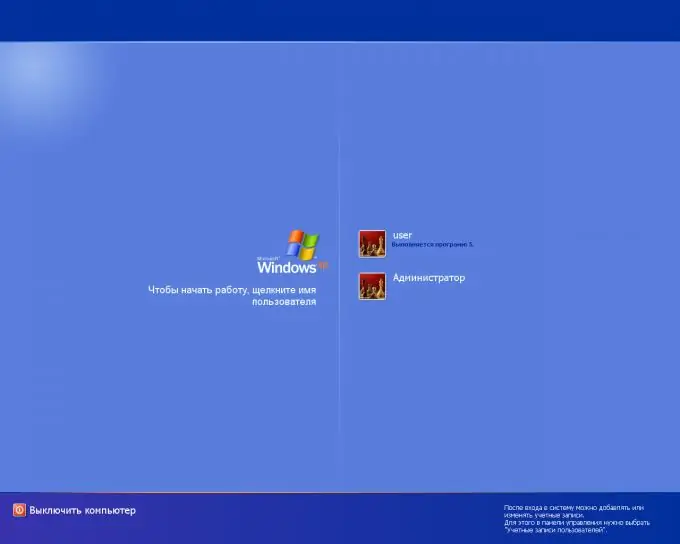According to experts, 90% of malware cannot harm a computer system if logged in as a user who does not have administrator privileges. Therefore, in some cases it is convenient to hide the administrator account from the welcome window, while leaving it active.

Instructions
Step 1
Press the "Start" button to enter the main menu of the system and go to the "Run" item.
Step 2
Enter gpedit.msc in the Open field and click OK to execute the command to launch the User Group Policy Editor tool (for Windows 7).
Step 3
Select the Computer Configuration section and go to Administrative Templates (for Windows 7).
Step 4
Click on the Windows Components link and open the Credential User Interface (for Windows 7).
Step 5
Apply the check box next to Disabled under Show Administrator Accounts When Elevated (For Windows 7).
Step 6
Return to the main Start menu and go to Run to invoke the Registry Editor tool (for Windows 7).
Step 7
Enter gpedit in the Open field and click OK to execute the command (for Windows 7).
Step 8
Open the following path: HKEY_LOCAL_MACHINESOFTWAREMicrosoftWindowsNTCurrentVersionWinlogonSpecialAccountsUserList. Create a new string parameter dword: user: REG_DWORD, where user is the name of the user account you want to hide (for Windows 7).
Step 9
Set the created parameter to "0" and restart your computer (for Windows 7).
Step 10
Click the "Start" button to enter the main Windows menu and go to "Run" to launch the Registry Editor utility (for Windows XP).
Step 11
Enter gpedit in the Open field and click OK to execute the command (for Windows XP).
Step 12
Find (or create) a system registry branch with the following parameters: HKEY_LOCAL_MACHINESOFTWAREMicrosoftWindowsNTCurrentVersionWinlogonSpecialAccountsUserList.
Step 13
Specify REG_DWORD: 1 to display the computer administrator account.
Step 14
Specify the value of the REG_DWORD parameter: 0 to hide the computer administrator account.
Step 15
Restart your computer to apply the selected changes.






